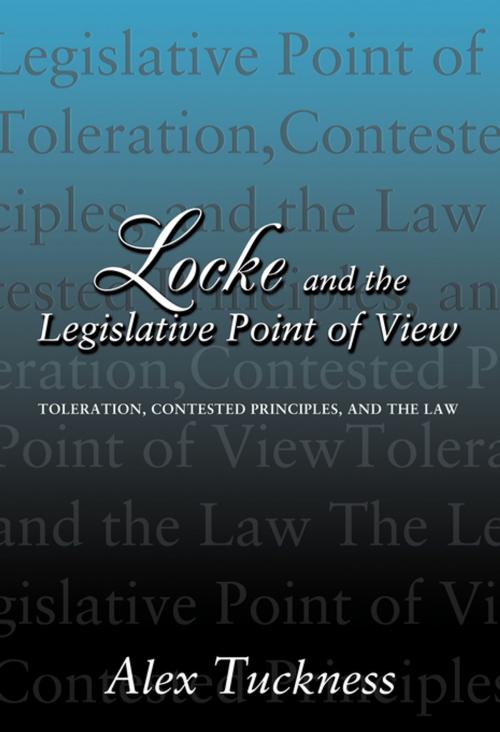Locke and the Legislative Point of View
Toleration, Contested Principles, and the Law
Nonfiction, Social & Cultural Studies, Political Science, Politics, History & Theory| Author: | Alex Tuckness | ISBN: | 9781400825394 |
| Publisher: | Princeton University Press | Publication: | February 9, 2009 |
| Imprint: | Princeton University Press | Language: | English |
| Author: | Alex Tuckness |
| ISBN: | 9781400825394 |
| Publisher: | Princeton University Press |
| Publication: | February 9, 2009 |
| Imprint: | Princeton University Press |
| Language: | English |
Determining which moral principles should guide political action is a vexing question in political theory. This is especially true when faced with the "toleration paradox": believing that something is morally wrong but also believing that it is wrong to suppress it. In this book, Alex Tuckness argues that John Locke's potential contribution to this debate--what Tuckness terms the "legislative point of view"--has long been obscured by overemphasis on his doctrine of consent. Building on a line of reasoning Locke made explicit in his later writings on religious toleration, Tuckness explores the idea that we should act politically only on those moral principles that a reasonable legislator would endorse; someone, that is, who would avoid enacting measures that could be self-defeating when applied by fallible human beings.
Tuckness argues that the legislative point of view has implications that go far beyond the question of religious toleration. Locke suggests an approach to political justification that is a provocative alternative to the utilitarian, contractualist, and perfectionist approaches dominating contemporary liberalism. The legislative point of view is relevant to our thinking about many types of disputed principles, Tuckness writes. He examines claims of moral wrong, invocations of the public good, and contested political roles with emphasis on the roles of legislators and judges. This book is must reading not only for students and scholars of Locke but all those interested in liberalism, toleration, and constitutional theory.
Determining which moral principles should guide political action is a vexing question in political theory. This is especially true when faced with the "toleration paradox": believing that something is morally wrong but also believing that it is wrong to suppress it. In this book, Alex Tuckness argues that John Locke's potential contribution to this debate--what Tuckness terms the "legislative point of view"--has long been obscured by overemphasis on his doctrine of consent. Building on a line of reasoning Locke made explicit in his later writings on religious toleration, Tuckness explores the idea that we should act politically only on those moral principles that a reasonable legislator would endorse; someone, that is, who would avoid enacting measures that could be self-defeating when applied by fallible human beings.
Tuckness argues that the legislative point of view has implications that go far beyond the question of religious toleration. Locke suggests an approach to political justification that is a provocative alternative to the utilitarian, contractualist, and perfectionist approaches dominating contemporary liberalism. The legislative point of view is relevant to our thinking about many types of disputed principles, Tuckness writes. He examines claims of moral wrong, invocations of the public good, and contested political roles with emphasis on the roles of legislators and judges. This book is must reading not only for students and scholars of Locke but all those interested in liberalism, toleration, and constitutional theory.















